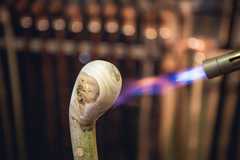Classic Canes / Crewkerne
Cane and able
A chance discovery gave rise to a West Country walking-stick firm that – with its emphasis on craftsmanship – is going places.
When moving into their new home in the late 1970s, husband and wife Ben and Diana Porter never imagined they would one day run a successful walking-stick manufacturer. The 29-hectare site that now houses Classic Canes is centred on an ex-hunting lodge in Somerset, southwest England. It wasn’t until a chance consultation with a team of foresters in the early 1980s that the Porters learned that the ash shoots sprouting beneath the tall beech trees here were ideal for stick-making: a small industry likely to increase in step with the demands of an ageing global population.
What started in 1982 as a small range of canes made for shopkeepers quickly grew into a sturdy business. After consultations with those in the trade, Ben settled on making ash, hazel and blackthorn sticks that are harvested each winter. “Stick-makers have taken their secrets to the grave and there’s no textbook on what we had to do,” says Ben, who attributes his success to a chipper attitude of trial and error he has carried with him throughout his three decades in the business. “Coppicing still exists but it’s very different now,” he adds as he leads monocle through the century-old beech trees that surround his home and place of business.
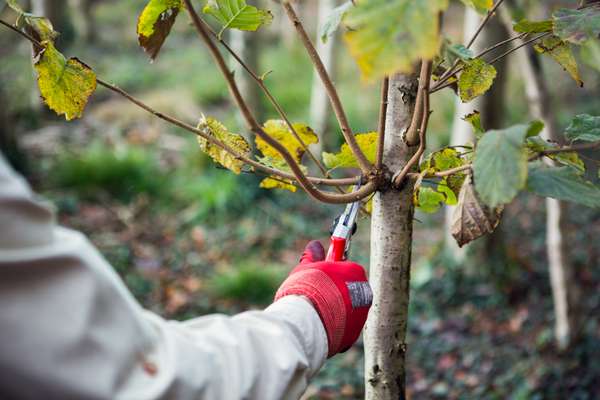
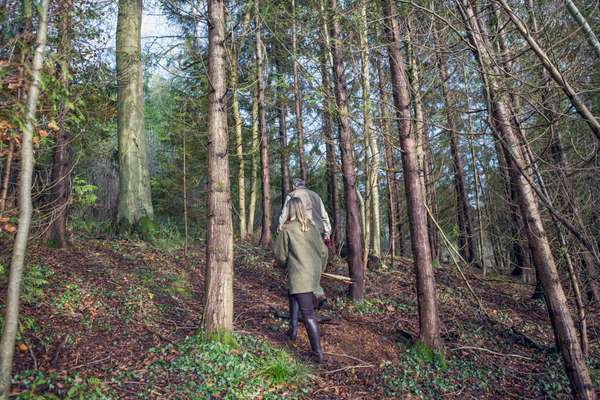
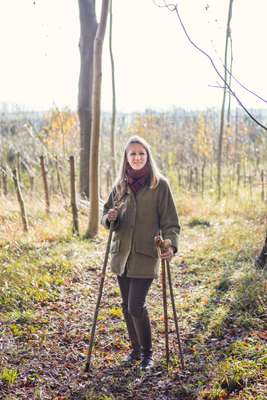
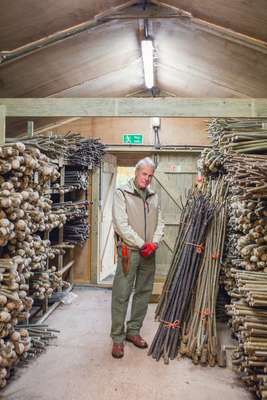
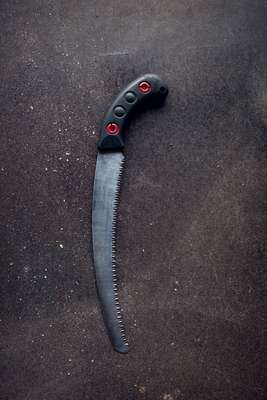
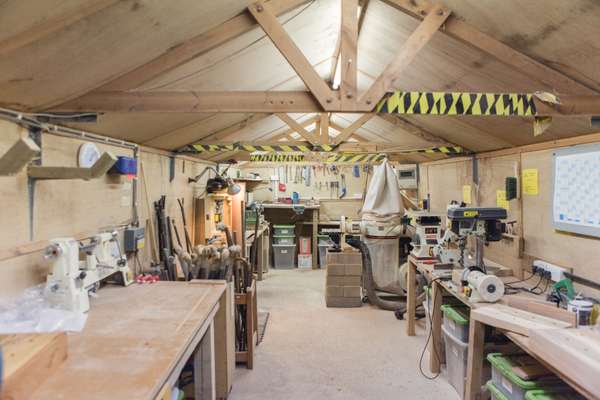
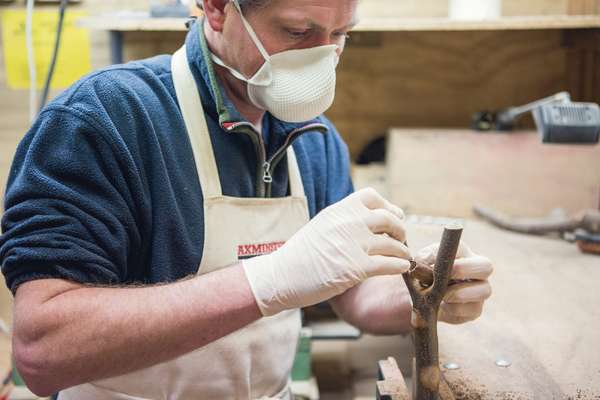
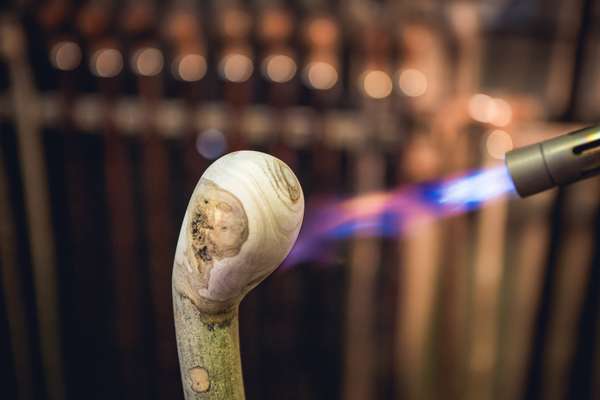
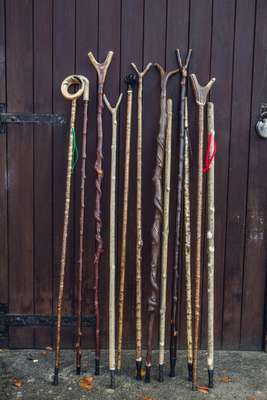
Classic Canes employs 11 full-time staff and manufactures 10,000 canes, walking sticks, seat sticks and umbrellas each year (ranging in price from tens to thousands of euros). Despite the company’s expansion, Ben still manages the key stages of production. When the sticks are cut each winter he is always a few paces behind his employees and carefully monitors the quality of each year’s yield.
After being marked with their year of harvest, the freshly cut bundles are stored in a hut with a dehumidifier for a year or more to dry the remaining moisture from the wood. If it’s too hot or too humid, the wood will warp or become too brittle to be straightened. It is during this third phase that Ben can be found moving between the drying hut and steam room as he carefully manipulates and straightens one stick at a time. The steam makes the wood supple and pliable, allowing any subtle imperfections to be evened and corrected.
In the workshop is former cabinet maker Alan White. After eight years with the company, White has developed a keen eye for embellishing the natural beauty of each piece of wood that passes through his skilled hands. “My job is to look at each stick and draw out its potential,” says White over the whirring of sanders. Each tool or machine dotted throughout the workshop has been adapted from its role in carpentry to the particular requirements of stick-making. Great care is key to ensure a return on the six years invested in each stick from seedling to sale.
“There is the threat of people doing things cheaply,” says Ben of the mass-produced alternatives available from overseas. “But our ability to adapt is what makes us so different in this business.” After joining the firm in 2003 the Porters’ daughter Charlotte Gillian became the company’s managing partner in 2010. “Knowing how to do it is one thing but knowing how to sell it is another,” she says.
When monocle visits, a cluster of packages line the stock room; the destinations are an indication of the global demand that now drives the business. One day’s shipment will be sent to a retailer in Japan, a small store in Ireland, a pharmacy in Switzerland and a mountaineering shop in Denmark. “People are now more interested in the provenance of the materials and the story behind the product,” says Ben.

